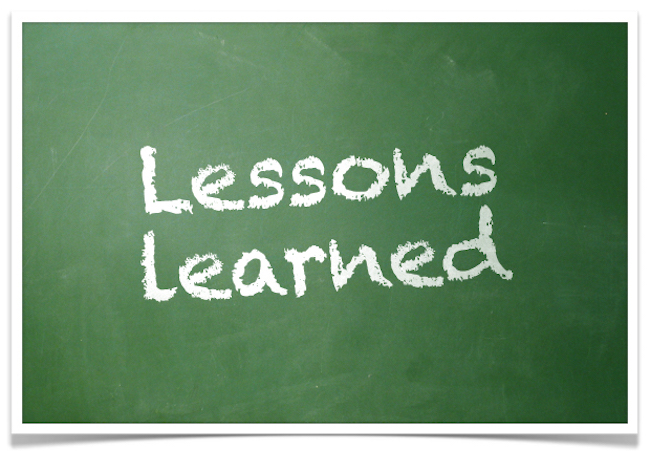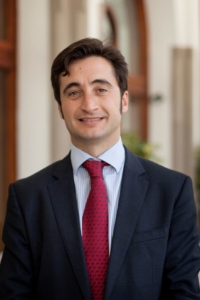Ever want the world to stop so you can catch a breath? Undoubtedly, most executives would answer “yes.” With accelerated business cycles and bootstrapped resources, many simply bounce from bubbling crises to heightened expectations to fast-emerging opportunities, duct-taping and spackling as they go along. Years ago, leaders would trek off to a retreat to re-evaluate (or even a sabbatical to re-charge). Now, many enroll in EMBA programs to step back from their day-to-day.
Among Poets&Quants’ Best Executive MBAs of the Class of 2015, one lesson was clear: You can’t do it alone. Melinda Shockley, an entrepreneur from Boston University’s Questrom School of Business put it succinctly: “As a leader, make sure to surround yourself with folks who complement your strengths, as you will never be an expert in all facets of a business.” At the same time, Columbia Business School’s Karl Blunden, a vice president at Goldman Sachs, experienced a lesson that many would consider counterintuitive: The best ideas come from where you least expect them. “The most meaningful contributions to our group projects often came from the team member with the least experience in that area – demonstrating the value of diverse perspectives.” However, as ESADE’s Shanmei Yu was reminded, the buck ultimately stops with you. “Never trust your counterpart with a Plan B.”
For some, the lessons were broad. Jolly Mazumdar, an R&D manager from the Columbia Business School, tells future EMBAs to “think broad, always consider alternatives, believe in the power of network, and be brave and take risks.” Other MBAs, however, learned as much about themselves as they did about business. “The biggest lesson I gained from business school was that I am more capable than I previously thought and to not be afraid to challenge myself,” admits Jonathan D. Tenenbaum, who recently graduated from the University of Florida’s Hough Graduate School of Business. And the University of Virginia’s Jennifer Schretter, another Goldman Sachs staffer, tied greater self-awareness with more mature leadership. “Know yourself and reflect,” Schretter urges. “The best leaders are those who know their strengths and weaknesses, and effectively compliment their skill set with a strong team…[and] listen – it is one of the most effective skills that a leader can have.”
If anything, this year’s top EMBAs were reminded that learning never ends. “The biggest lesson I gained,” writes The University of Minnesota’s Erin Dady, “is that learning, challenging myself intellectually, and understanding other perspectives makes me happy. It wasn’t too late to go back to school.”
Here are some additional lessons gained by 2015 EMBAs:
Pick The Right Team Members
“[My biggest lesson] was the importance of hiring and recruiting amazing people. An Executive MBA from ASU gives you great exposure to all of the unique facets of business. However, you learn quickly that you will never be an expert in all of the various subjects. An MBA exposes you to all of the different components of business so that you can develop a general understanding and learn to speak the languages. However, it also highlights for you just how much help you will need to succeed at the highest level. As I continue to build the executive team of my company, business school has helped me realize where holes exist and also where I should focus my recruiting. I don’t want our business to only be great at the things that I’m great at. Instead, I want us to thrive in every facet of business that I learned about in school. I now appreciate even more that it’s going to take an amazing staff to be able to pull that off.” – Scott Gates / Arizona State University, Carey School of Business
Embrace The Science Of Leadership
“I have drawn many lessons from Booth. Thanks to the Chicago approach, I have learned to go to the data first so as to support every single judgment, study or opinion based on the data, and not on conjectures.“ – Sebastian Cerezo Montañez / University of Chicago, Booth School of Business
“I gained an understanding that managing has a lot more “science” to it than a leader often realizes. While leading from instinct and experience can produce great results, becoming a manager that is evidence-based is very important. It’s also important to build solid teams that bring key skill sets to any challenge a company may face.” – Lars E. Carlson / Michigan State University, Broad College of Business
Empower Your Team
“I have [also] rediscovered the value of teamwork, of leading people to deliver their best. Empowering them to develop their full potential is most of the times the key to success. And always share your achievements and failures with the team, so that they have complete ownership of what they do. [In addition], I have learned that setting high goals often lead to better results, particularly if you are surrounded by talented people.” – Sebastian Cerezo Montañez / University of Chicago, Booth School of Business
Value Your Relationships
“Business is a highly personal matter. No matter what your title is or what industry you work in, you will be required to work in a team or interact with consumers and clients in a professional manner. The MBA program is one of the best opportunities to develop skills in this regard. At the end of the day, individual skills are only a portion of what is required to be successful in business. Personal relationships and teamwork play a very important role in any company and I am very happy that the MBA program forces every student to grow in this area.” – Derek Herrera / UCLA, Anderson School of Management
Value Your Time
“I learned that I do have more time in a day than I thought I did. Now I know that there is much more that I can accomplish and give back in work and life.” – Robert Ford / University of California-Berkeley, Haas School of Business
“One of the biggest lessons I have learned is the importance of organization and time management. Juggling work, school, community service, and family requires a great calendar and good preparation. I feel that I can tackle any challenge now.” – Freddie Barela / Southern Methodist University, Cox School of Business









Questions about this article? Email us or leave a comment below.